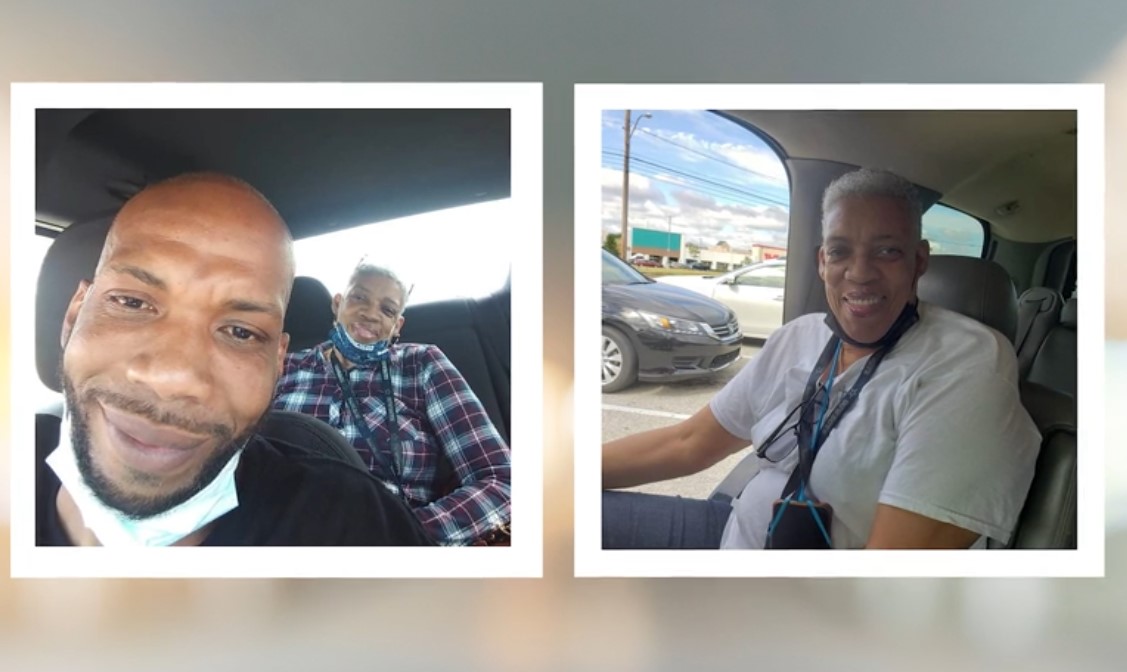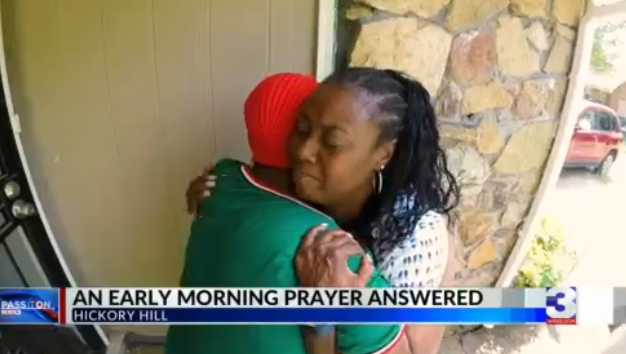FORREST CITY, Ark. — Inmates are looking for answers after nearly 30 cases of COVID-19 popped up at the federal prison in Forrest City.
State health officials said they are working with the CDC to help the facility in their containment efforts, but some inmates said it may be too late.
A man incarcerated at the Forrest City federal correctional institution didn’t want to reveal his identity, but after the recent coronavirus outbreak at the complex, he wanted to share his story.
“I wasn’t sentenced to death or a possible death sentence—none of us were,” he said. “Now, you’re telling me with this virus loose in this prison, I could possibly be facing a death sentence?”
So far, 29 people at the facility have tested positive for COVID-19: 24 inmates and 5 staff members. This prompted the CDC to step in for assistance.
The inmate WREG spoke with said inmates are only getting treated once they show severe symptoms.
“There are six toilets, five urinals and 12 showers that 150 people share,” he said.
Arkansas state health officials said more symptomatic cases have appeared at the prison, leading to more testing.
Officials also said the prison is in the process of separating the sick and healthy inmates.
United States Attorney General William Barr sent a memo last week to the director of the Bureau of Prisons mandating they prioritize home confinement as an appropriate response to the COVID-19 pandemic.
The bureau said there are nearly 4,000 inmates nationwide on home confinement, and it’s increased by 40% since March.
But some feel those same mandates aren’t being enforced within the Forrest City facilities.
“He’s basically left in there for no good reason to be exposed to the coronavirus and possibly die from it,” the fiancé of another Forrest City inmate said.
She said her fiancé was approved for home confinement but won’t be released until later this year.
She said he is under quarantine and has respiratory issues but has not been tested.
“They’re not being tested,” she said. “These sick people are not being tested.”
In a statement, the Bureau of Prisons said the CDC does not require universal testing in asymptomatic individuals. The bureau said if an inmate is asymptomatic, they are under quarantine for 14 days.
If an inmate shows symptoms, they will be placed in isolation until they test negative.
“No one will be released unless you’re dying and on your deathbed,” the inmate said.
The concern lies not only inside the prison walls, but also outside
The inmate said guards are given protective gear and even told to limit interactions with inmates, but some feel that may not be enough to prevent the virus from spreading outside as it grows inside.
“If the employees don’t already have it, they are exposed to it,” the fiancé said. “They’re carrying it back home and to the community. It’s not just one way. They’re bringing it in, and they’re taking it back out.”
The Bureau of Prisons said they have instituted a plan that includes screening, testing, and appropriate treatment and prevention.
Full statement from a spokesperson of the Bureau of Prisons below:
In response to COVID-19, the Bureau of Prisons (Bureau) has instituted a comprehensive management approach that includes screening, testing, appropriate treatment, prevention, education, and infection control measures. We have been coordinating our COVID-19 efforts since January 2020, using subject-matter experts both internal and external to the agency, including guidance and directives from the World Health Organization (WHO), the Centers for Disease Control (CDC), the Office of Personnel Management (OPM), the Department of Justice (DOJ), and the Office of the Vice President.
Using the Incident Command System (ICS) framework, we developed and implemented an incident action plan that addressed our Continuity of Operations Program (COOP), supply management, inmate movement, inmate visitation, and official staff travel, as well as other important aspects. Our Central and Regional Offices, and the National Institute of Corrections continue to coordinate planning and guidance with state and local prisons and jails.
The first phases of our nationwide action plan were vital steps essential to slowing the spread of the virus. These actions included establishing a task force to begin strategic planning and building on our already existing procedures for managing pandemics. We started limiting facility-to-facility transfers, and other inmate movement, as well as implementing screening, quarantine and isolation procedures. In addition, we suspended social and legal visits, cancelled staff training and travel, limited access for contractors and volunteers, and established enhanced screening for staff and inmates, including temperature checks. We began inventorying sanitation, cleaning, and medical supplies and procuring additional supplies of these items. All of these actions were carried out with the goal of reducing the risk of introducing and spreading the virus inside our facilities.
All Bureau institutions were on enhanced modified operations as of April 1, 2020, under Phase 5 of our action plan, https://www.bop.gov/resources/news/pdfs/20200331_press_release_action_plan_5.pdf. This action was taken as a means to further mitigate exposure and spread of COVID-19 at the facility. Enhanced modified operations are not a lockdown but rather a means to minimize inmate movement, to minimize congregate gathering, and maximize social distancing among the inmate population. Under enhanced modified operations, inmates are limited in their movements within the institution, with inmate movement in small numbers authorized for access to Commissary, laundry, showers, telephone and electronic messaging access, medical and mental health care, and some essential work details or work assignments. Symptomatic inmates are not placed on any work details or work assignments. Just like in communities nationwide who have been required to shelter-in-place, the BOP implemented this course of action to mitigate the spread of the virus.
We realize that suspending social visiting has an impact on inmates and their loved ones, but, our primary purpose in doing so is to help keep them and the community safe. In order to compensate for the absence of in-person visits, we increased monthly telephone minutes for all inmates from 300 to 500, in recognition of how important it is for families to stay in touch during this time. Inmate mail is being distributed daily.
During this time, access to legal counsel remains a paramount requirement but, like social visiting, the BOP needs to reduce the risk of exposure created by external visitors. As such, while in general, legal visits are suspended for 30 days, case-by-case accommodation will be accomplished at the local level and confidential legal calls will be allowed in order to ensure inmates maintain access to counsel.
With respect to inmate movement generally, Bureau movement nationwide is down 81% from last year, and this is directly a result of steps we have taken as we have implemented our COVID-19 pandemic plan. However, the Bureau is required to accept inmates awaiting trial remanded to our custody. We must also accept newly-convicted inmates for service of their sentence. This requirement is based in federal statute (see the Bail Reform Act, Title 18 U.S.C. § 3141); if a federal judge orders a pre-trial offender to be detained, the Federal government, which includes Bureau facilities, must assume custody and care of the inmate. To be clear, while the Bureau can control and limit its intra-agency movements, we have no authority to refuse inmates brought to us by the USMS.
Effective March 26, the Bureau issued guidance that all newly admitted inmates into the Bureau were screened and temperature checked by employees wearing PPE, to include surgical masks, face shields/goggles, gloves, and gowns in accordance with CDC guidance. At this time, the CDC does not recommend universal testing to screen for COVID-19 in asymptomatic individuals. If an inmate is asymptomatic, they are placed in quarantine for a minimum of 14 days. If symptomatic for COVID-19, the inmate must be placed in isolation until they test negative for COVID-19 or are cleared by medical staff as meeting CDC criteria for release from isolation.
Staff, contractors, and other visitors to the institution also must undergo a screening and temperature check by a staff member or contractor wearing appropriate PPE prior to entering the facility, with those who register a temperature of 100.4° Fahrenheit or higher denied access to the building. Due to the critical role our staff play with regard to public safety, we have developed a template to provide to staff who are in close contact of a COVID-19 positive individual to seek to ensure such persons receive priority COVID-19 testing.
All inmates releasing or transferring from BOP facilities to the community will be placed in quarantine for 14 days prior to their scheduled departure from the institution. This includes but is not limited to Full Term releases, Good Conduct Time releases, releases to detainers, furloughs, and transfers to Residential Reentry Centers/Home Confinement. If an inmate is in isolation on their release date, the institution will notify the local health authorities in the location where the inmate is releasing. Transportation that will minimize exposure will be used and inmates will be supplied a mask to wear.
Given the surge in positive cases at select sites and in response to the Attorney General’s directives, the BOP has begun immediately reviewing all inmates who have COVID-19 risk factors, as described by the CDC, starting with the inmates incarcerated at FCI Oakdale, FCI Danbury, FCI Elkton and similarly-situated facilities to determine which inmates are suitable for home confinement.
Inmates do not need to apply to be considered for home confinement. Case management staff are urgently reviewing all inmates to determine which ones meet the criteria established by the Attorney General. The Department has also increased resources to review and make appropriate determinations as soon as possible.
While all inmates are being reviewed for suitability, any inmate who believes they are eligible may request to be referred to Home Confinement and provide a release plan to their Case Manager. The BOP may contact family members to gather needed information when making decisions concerning Home Confinement placement.
Guidance related to the BOP’s use of Home Confinement in response to Attorney General Barr’s original memo to the Bureau of Prisons on March 26, 2020 instructing the BOP to prioritize home confinement as an appropriate response to the COVID-19 pandemic, to include an updated number of inmates placed on home confinement status as a result of this memorandum, may be found here https://www.bop.gov/resources/news/20200405_covid19_home_confinement.jsp. We are urgently reviewing all inmates to determine which ones meet the criteria to be suitable for home confinement as established by the Attorney General.
For the number of COVID-19 Home Confinement Releases, visit the COVID-19 Home Confinement section of our resource page on our public website https://www.bop.gov/coronavirus/index.jsp.
As a nationwide system, we are able to leverage and transfer resources from institutions without incidences of COVID-19 to institutions with greater need. Soap is available throughout the institutions and in cells, and inmates have been educated on CDC guidelines for hand washing, coughing/sneezing in sleeve or tissue, and no physical contact. Additionally, staff, including all executive staff and department heads, are making frequent rounds throughout housing units, door-to-door, conducting wellness checks, and if an inmate reports feeling ill, he/she is immediately screened by health services personnel. Inmates presenting as symptomatic are isolated in accordance with CDC and public health directives. Testing may be performed as clinically warranted.
Sanitation efforts continue across all institutions. All cleaning, sanitation, and medical supplies have been inventoried at the BOP’s facilities, and currently an ample supply is on hand and ready to be distributed or moved to any facility as deemed necessary. As the COVID-19 outbreak continues to evolve, the BOP updates and refines its recommendations based on CDC guidance, and protocols, and will continue to provide helpful information to staff, inmates and federal, state and local partners.
As much as possible, staff are being assigned to the same posts and not rotating, as an additional measure to mitigate the spread of the virus. The BOP is not testing staff as part of our staff screening program. It is not recommended by the CDC as there is not sufficient scientific data to support screening for disease in asymptomatic people.
The BOP has Personal Protective Equipment (PPE) supplies and is utilizing them in accordance with CDC guidance. As has been made clear by the CDC, supplies of PPE and prudence dictates that equipment is used to optimize the limited supply (https://www.cdc.gov/coronavirus/2019-ncov/hcp/ppe-strategy/index.html) available in both the private and public sectors.
Guidance as to where and when PPE such as N95 masks should be worn have been provided to all sites, is consistent with CDC guidance, and depends on several factors, including whether or not an institution has an active case and each employee’s job description. As noted by the CDC’s and OSHA guidance, there are several types of respiratory masks as well as surgical face masks; certain masks are appropriate and effective in certain scenarios and not in others. Some scenarios would require an employee to wear a N95 mask, and others where it would not be necessary. Guidance on what types of PPE is necessary and under what circumstances is available here: www.cdc.gov/coronavirus/2019-ncov/hcp/ppe-strategy/index.html. Staff working in areas of isolation and quarantining are required to wear full PPE. We are mindful of updated guidance issued by the CDC as recently as Friday April 3rd regarding the use of cloth masks in public.
In response to updated guidance from the CDC we issued surgical masks to everyone – staff and inmates – in our prisons. Going forward, 15 Federal Prison Industries factories have begun production on cloth masks for our staff and inmate population, non-surgical medical gowns for medical facilities, and packaging hand sanitizer for use within the Bureau and other agencies. We will distribute the cloth masks as they are produced to preserve surgical masks for quarantine and screening purposes with the goal being, consistent with CDC guidance, to limit transmission of coronavirus by “asymptomatic” or “pre-symptomatic” persons when social distancing cannot be achieved.
For more information about COVID-19, to include the BOP’s COVID-19 Action Plan, the number of COVID-19 related deaths, and open, positive test, COVID-19 cases for staff and inmates, please visit the BOP’s Coronavirus resource page on our public website, https://www.bop.gov/coronavirus/index.jsp. Due to the rapidly evolving nature of this public health crisis, the BOP will update this dashboard daily, based on the most recently available data from across the agency as reported by the BOP’s Office of Occupational Health and Safety. The number of open positive test cases only reflects current cases that have not been resolved.
When a COVID-19 related inmate death occurs, and next of kin have been notified, additional information will be posted to our public website found here: https://www.bop.gov/resources/press_releases.jsp. Please note, the situation is very fluid and we are constantly updating this information. We recommend you visit the site frequently.
We understand these are stressful times for both staff and inmates. The local Crisis Support Team (CST) has been activated at many BOP facilities, checking on the welfare of staff. On Friday, April 3, 2020, BOP activated a nationwide 24-hour support line for all staff. The support line offers an outlet for staff to openly and anonymously discuss their concerns, receive support and engage in problem solving. The Employee Assistance Program (EAP), which is offered in coordination with Federal Occupational Health in the Department of Health and Human Services, is also available to staff. EAP provides free confidential counseling services via licensed, certified professional counselors. EAP services are available 24 hours a day for staff and their families.
We are deeply concerned for the health and welfare of those inmates who are entrusted to our care, and for our staff, their families, and the communities we live and work in. It is our highest priority to continue to do everything we can to mitigate the spread of COVID-19 in our facilities.

























